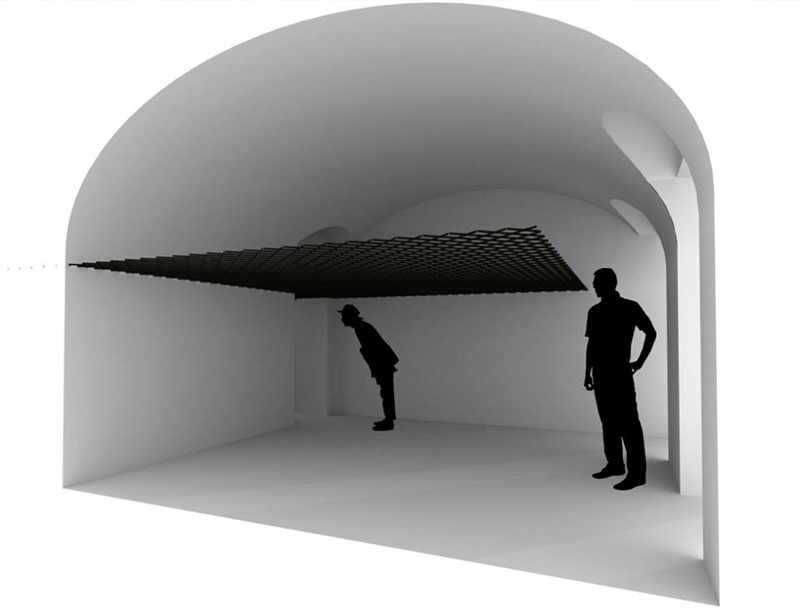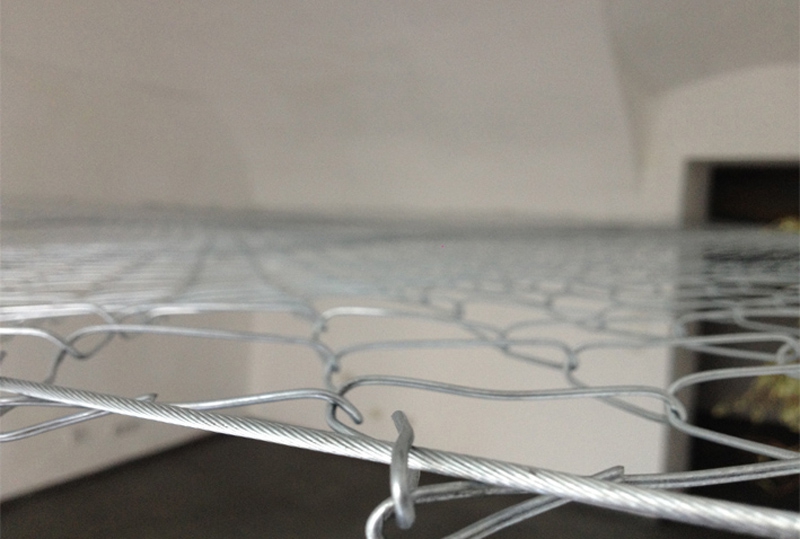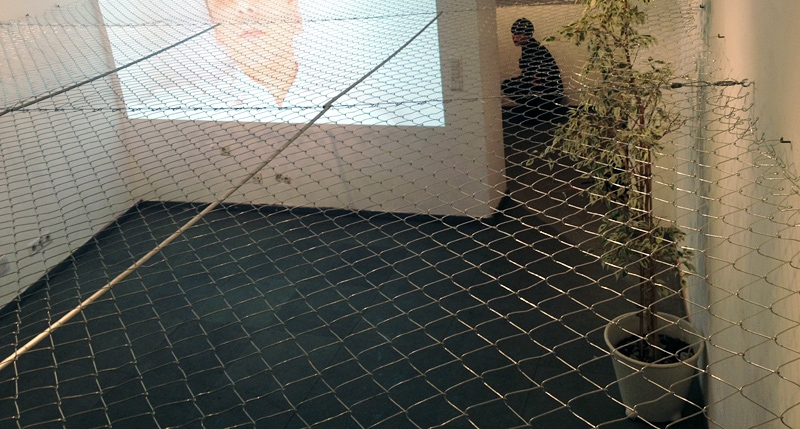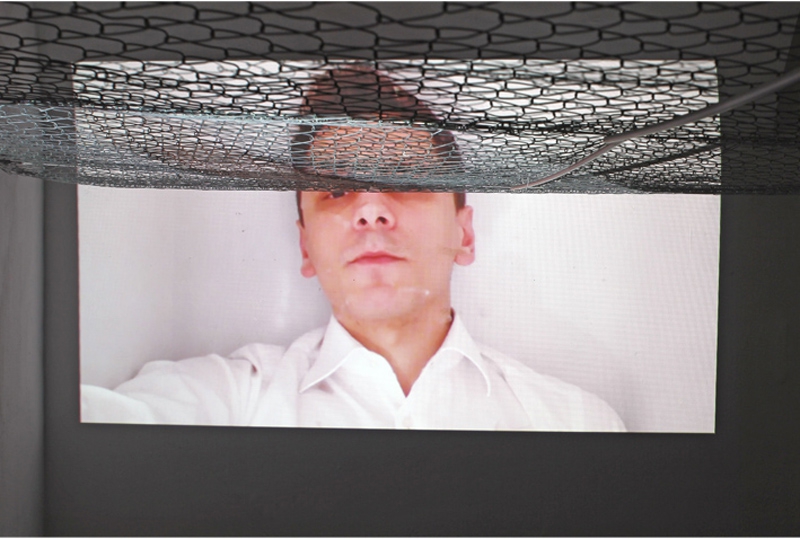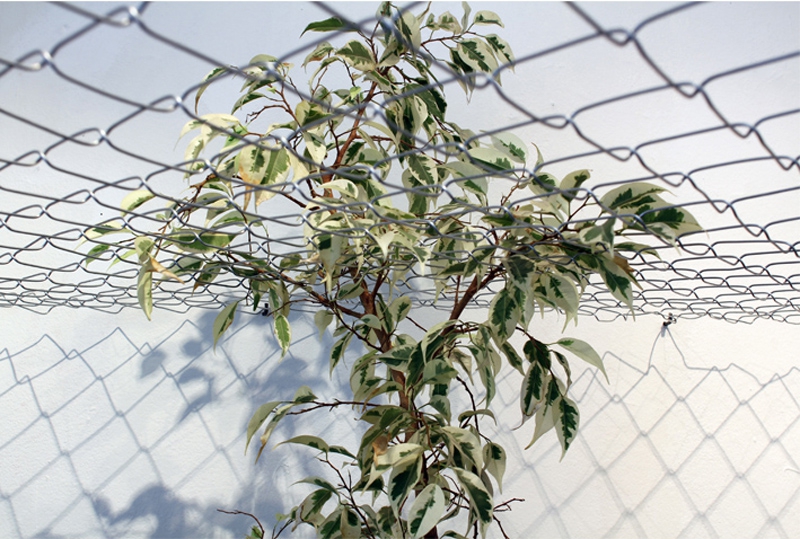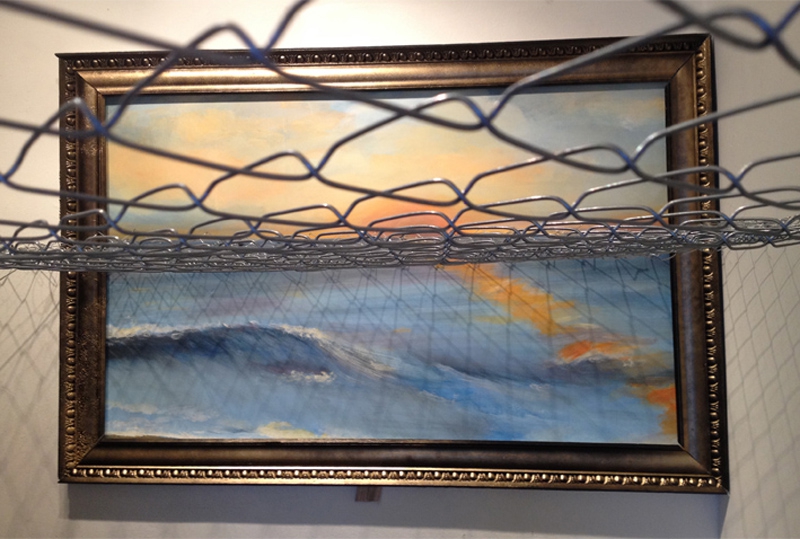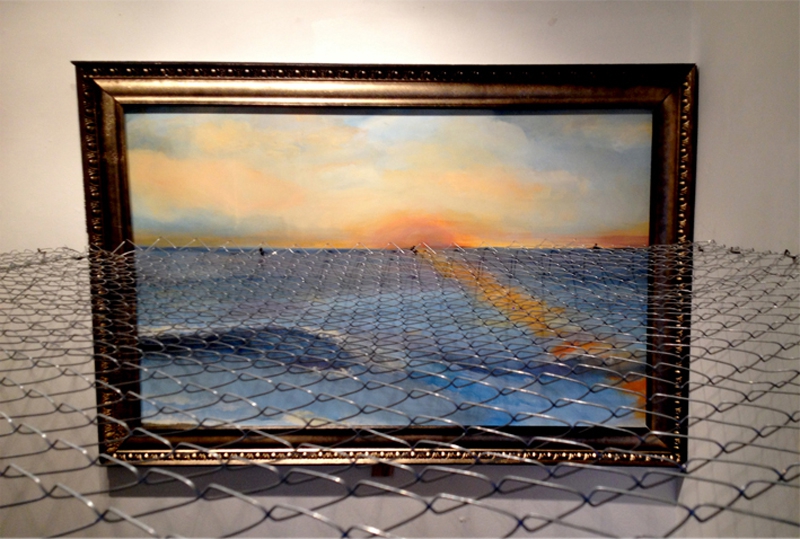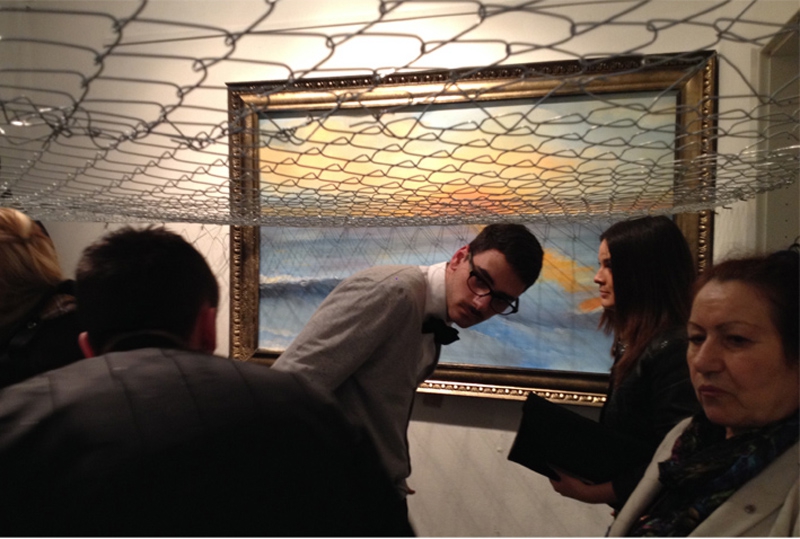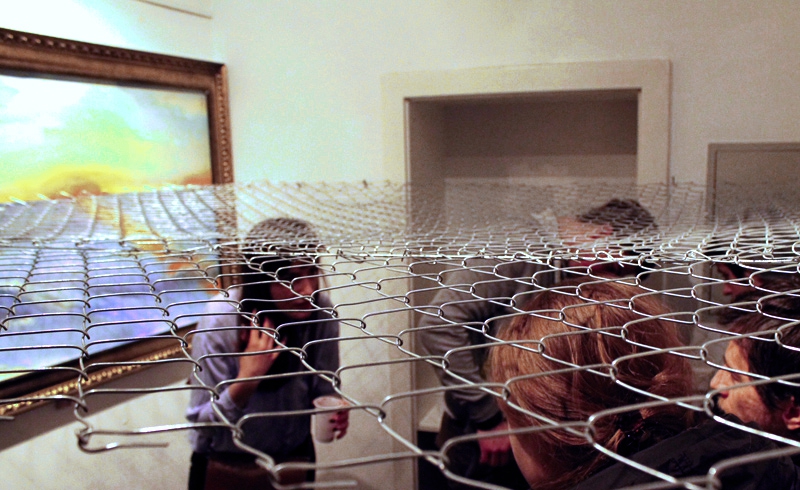PERSPEKTIVA
Rad PERSPEKTIVA Marka Tirnanića problematizuje pitanje društveno konstruisanih okvira u kojima se proizvode i usvajaju znanja i osećanja. Ko i na koji način uspostavlja našu viziju društva, savremene umetnosti, uspeha, sreće? U Markovom radu mehanizmi ideologije su materijalizovani: tu je rešetka koja usmerava kretanje posetilaca, stavljajući ih u poziciju poniženih; međutim, u susretu sa izloženim video radom autora koji ih ponižava, perspektiva se menja – nalaze autora koji je i sâm ponižen. Pojam poniženosti izuzetno je važan ukoliko se stavi u kontekst savremenih geopolitičkih teorija. Recimo, u studiji Geopolitika emocija, Dominik Moisi (Dominique Moïsi) govori o tri vrste vladajućih kultura: kulturi straha (USA, EU), kulturi nade (Kina, Indija) i kulturi poniženja (arapski svet). Može se reći da i u Srbiji, iz koje autor dolazi, vlada kultura poniženja, a postavljanje izložbe u Austriji, koja za Srbiju, i istorijski gledano, predstavlja najbližeg „velikog Drugog“ produbljuje dramatičnost postavljenih pitanja o savremenim globalnim odnosima.
Markov rad se može tumačiti iz aspekta postkolonijalnih studija, međutim, za njegovo razumevanje ključne su kritika ideologije i biopolitika. Postavkom rešetke u visini sopsvenih očiju, autor nameće svoju tačku gledišta svim posetiocima; njegova perspektiva je centralna i dominantna, a svi drugi su i fizički primorani da se prilagode postavljenim uslovima. Centralno mesto Fukoove kritike sistema društvene represije je problem disciplinovanja tela, pošto je telo otkriveno kao objekat i meta vlasti još u klasičnom dobu. Disciplina se prvenstveno ostvaruje putem organizacije prostora i aktivnosti (v. Fuko, Nadzirati i kažnjavati). Kodifikovanjem prostora u galeriji, organizovanjem kretanja, kao i rasporedom izloženih radova, istovremeno se proizvode i razgolićuju konstrukti o „prirodnim“ odnosima moći, autoritetu, pokornosti i disciplini. Za razliku od ranijih Markovih radova koji postavljaju pitanje kako različite društvene uloge, pozicije i prakse (religija, klasa, obrazovanje, pol) ograničavaju naše slobode, zanimanje autora u izložbi PERSPEKTIVE fokusirano je na složen sistem odnosa koji vladaju u svetu savremene umetnosti.
Nina Mihaljinac i Jovana Vasić
---------------------
PERSPEKTIVE
Marko Tirnanic’s new work PERSPEKTIVE problematizes the question of socially constructed settings in which knowledge and feelings are produced and adopted. Who and in which way forms our perception of society, contemporary art, success and happiness? In Marko’s work mechanism of ideology are materialized: the presence of grid which directs and restricts the movement of the audience, puts them in the position of the humiliated; however, when audience encounters the video which is a part of the authors installation, the change of perspective occurs- they find the author being himself humiliated. The notion of humiliation can be seen here in the context of contemporary geopolitical theories. For instance, in the work The Geopolitics of Emotion: How Cultures of Fear, Humiliation, and Hope are Reshaping the World, Dominique Moïsi talks about three dominant cultures in this context: culture of fear (USA, EU), culture of hope (China, India) and culture of humiliation (Arabic world). It can be said that in Serbia also, the authors’ origin country, the dominant culture is that of humiliation. Furthermore, taking into account the fact that this show is developed in Austria, which for Serbia, also from historical point of view, represents the closest “Other”, deepens the dramatics of questions posed here, about contemporary global relations.
Marko’s work can be analyzed in the context of postcolonial studies, however, what seems to be the key for its understanding is, in this case, the critique of ideology and biopolitics. By installing the grid, the fence, at the height of his own eyesight, author imposes his point of view to the visitors; his perspective is central and dominant, while everybody else is even physically forced to adapt to these set conditions. Foucault’s critique of systems of social repression takes the problem of discipline of the body as a central point, as body has been discovered as an object and target of the authority since classic times. Discipline is primary established through organization of space and activities (see M. Foucault, Discipline and Punish). By codifying the space of the gallery, organizing and controlling the movement of the visitors, as with the layout of exhibited works, Marko’s work produces, and at the same time “reveals”, the constructs of “natural” relations of power, authority, obedience and discipline. Unlike previous works, which questioned how different social roles, positions and practices (religion, class, education, gender) limit our freedoms, Marko’s focus in the exhibition PERSPEKTIVE is on complex set of relations which prevail in the contemporary art world.
Nina Mihaljinac i Jovana Vasić
